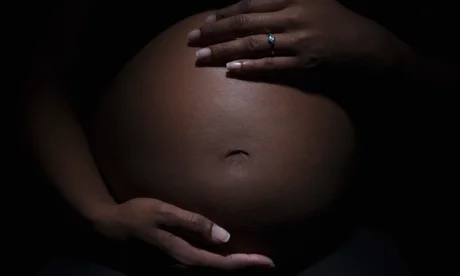A report aimed at the decision-makers who will attend the Cop29 summit in November has shown that miscarriages, premature babies and harm to mothers caused by the climate crisis are a “blind spot” in action plans.
Potential collapse of the Amazon rainforest, vital Atlantic Ocean currents and essential infrastructure in cities are also among the dangers cited by an international group of 80 leading scientists from 45 countries in the report which collects the latest insights from physical and social science to inform the negotiations at the UN climate summit in Azerbaijan.
“The world faces planetary-scale challenges, from the rise of methane emissions to the vulnerability of critical infrastructure,” said Prof Johan Rockström, a co-chair of Earth League, one of the groups behind the report. “The report shows that rising heat, ocean instability and a tipping of the Amazon rainforest could push parts of our planet beyond habitable limits. Yet it also provides clear pathways and solutions, demonstrating that with urgent, decisive action, we still can avoid unmanageable outcomes.”
The report follows an ultimatum from the UN secretary general, António Guterres, on the climate emergency: “We’re playing with fire, but there can be no more playing for time. We’re out of time.” He said global heating was supercharging monster hurricanes, bringing biblical floods and turning forests into tinderboxes, and said governments had to rapidly wean the world off its fossil fuel addiction.
Read also: Whitehaven Coal faces shareholder action over mining plans, CEO’s $7m bonus
Increasing climate extremes are causing more lost babies, premature births and cognitive damage to newborns, the report said. For example, a study in India found a doubled risk of miscarriage in pregnant women suffering heat stress, while another in California found a significant association between long-term heat exposure and stillbirth and premature birth.
Flooding is responsible for more than 100,000 lost pregnancies a year in 33 countries in South and Central America, Asia, and Africa, according to another study, with the danger highest for women with lower income and education levels. Rising heat also increases the intimate partner violence suffered by women, a south Asian analysis found.
However, only 27 out of 119 national climate plans submitted to the UN include action related to mothers and newborns, making this a major “blind spot”, the report said.
“Global temperature records continue to break, exacerbating threats to maternal health,” said Prof Jemilah Mahmood at the Sunway Centre for Planetary Health in Malaysia. She said the breakdown of healthcare services, sanitation and food supplies during extreme weather compounded the problems for pregnant women.
“Preparedness for heat extremes, including early warning systems, must be a priority,” she said. “Without action, the consequences could be catastrophic.” The report cites recent analysis that found global heating would drive billions of people out of the “climate niche” of habitable temperatures in which humanity has flourished for millennia.
Story was adapted from the Guardian.
